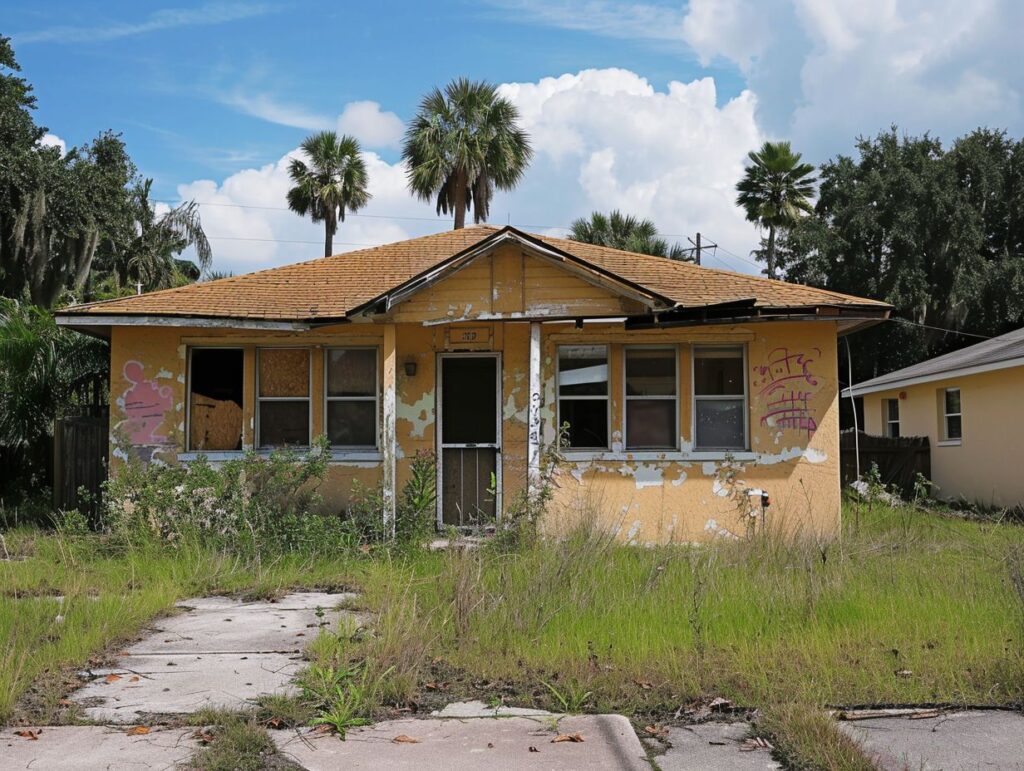Real estate fraud is a serious issue that can have devastating consequences for individuals and families.
In Florida, there are various types of real estate fraud, including mortgage fraud, title fraud, foreclosure rescue scams, and rental fraud.
It is important to be aware of the red flags and take steps to protect yourself, such as conducting thorough research and seeking legal advice.
If you suspect real estate fraud, it is crucial to know how to report it and understand the laws and penalties in Florida.
This article will provide valuable information on how to navigate real estate fraud in Florida and what steps to take if you find yourself in a fraudulent situation.
Key Takeaways:
- Real estate fraud in Florida can take many forms, including mortgage, title, foreclosure rescue, and rental fraud.
- To protect yourself from falling victim to real estate fraud, make sure to do thorough research, be aware of red flags, and seek legal advice.
- If you suspect real estate fraud, report it immediately and be aware that Florida laws impose both civil and criminal penalties for those found guilty.
What is Real Estate Fraud?
Real estate fraud in Florida encompasses deceptive practices where individuals or entities utilize illegal methods to manipulate real estate transactions. This often results in significant financial losses for victims, including homeowners and sellers, and can lead to legal disputes concerning deeds, mortgages, and property ownership.
This type of fraudulent activity can manifest in various forms, such as property flipping schemes involving artificially inflated prices, mortgage fraud where false information is provided to secure a loan, and rental scams wherein nonexistent properties are advertised to deceive renters.
Real estate fraud not only directly harms the unsuspecting property owners involved but also has wider implications for the real estate market. These fraudulent practices can distort property values, undermine trust in the market, and ultimately have negative effects on the economy.
Types of Real Estate Fraud in Florida
Real estate fraud can manifest in various ways, presenting distinct risks to homeowners and property buyers. These forms include mortgage fraud, title fraud, foreclosure rescue scams, and rental fraud.
1. Mortgage Fraud
Mortgage fraud is the act of manipulating the mortgage lending process by providing false or misleading information to a lending institution in order to obtain loans under false pretenses.
This deception can manifest in various ways, such as falsifying income documents, inflating property appraisals, and misrepresenting personal information. These fraudulent activities not only compromise the integrity of the mortgage system but also have widespread implications for both borrowers and lenders.
Borrowers who engage in mortgage fraud may face legal consequences, damage to their credit scores, and potential foreclosure if they are unable to repay the loan acquired through fraudulent means. Conversely, lenders experience financial losses, harm to their reputation, and increased regulatory scrutiny when they fall prey to mortgage fraud schemes.
2. Title Fraud
Title fraud is defined as the act of signing or forging a deed to falsely transfer property ownership without the knowledge or consent of the rightful owner. This deceptive practice often involves intricate schemes where fraudsters take advantage of loopholes in the title transfer process.
They may employ fake identities or manipulate documents to make it seem like a property has legitimately changed hands. Once the fraudulent deed is officially recorded, the true owner who is unaware of the fraud may encounter complicated legal challenges in proving their legitimate ownership.
It is essential for property owners to routinely verify the authenticity of their deeds to protect themselves against potential title fraud. Failing to detect such fraudulent activities can result in significant financial losses and a clouded title, which can create hurdles in property transactions and ownership rights.
3. Foreclosure Rescue Scams
Foreclosure rescue scams target homeowners facing the risk of losing their property by making false promises to save their homes. These scams often involve tactics like charging upfront fees, pressuring homeowners to transfer the deed to their property, or advising them to stop making mortgage payments.
Homeowners should exercise caution regarding unsolicited offers, high-pressure sales tactics, and guarantees of success. Red flags to watch for include promises of immediate relief, claims of special government affiliation, or instructions to make mortgage payments to a third party.
Seeking assistance from legitimate nonprofit housing counselors or reputable legal professionals is essential to prevent falling victim to these predatory schemes.
4. Rental Fraud
Rental fraud is characterized by deceptive practices in which a scammer pretends to be a landlord or property owner to receive rent or deposits from unsuspecting renters without any intention of renting out a genuine property.
These scams manifest in various ways, such as fraudulent rental listings on popular platforms and falsified lease agreements that initially appear legitimate. It is essential for renters to authenticate the property ownership and documentation before making any payments to prevent falling prey to these deceptive schemes.
Engaging in thorough research, requesting to view identification and ownership proof, and verifying information with local property records can assist renters in safeguarding themselves against rental fraud.
How to Protect Yourself from Real Estate Fraud?
Preventing real estate fraud involves being diligent and aware. This includes conducting thorough research, recognizing warning signs, and seeking legal guidance to verify the validity of real estate transactions.
1. Do Your Research
Conducting thorough research on the property, including verifying the title and ownership history, is essential for homeowners to prevent falling victim to real estate fraud.
This process typically involves checking public records to confirm the legal status of the property and ensure there are no outstanding liens or disputes. Plus title searches, it is crucial to investigate the background of all parties involved in the transaction, such as real estate agents, brokers, and sellers.
Industry experts, like appraisers and inspectors, can provide valuable insights into the property’s condition and value. Seeking guidance from the legal community can offer further protection by reviewing contracts and ensuring compliance with local regulations.
2. Beware of Red Flags
It is important for individuals to be aware of red flags in real estate transactions, such as suspiciously low prices and pressure to sign agreements or documents quickly. Another common warning sign is sellers who are reluctant to provide proper documentation or disclose important details about the property.
This lack of transparency may suggest an attempt to conceal relevant information. For example, if a seller does not provide a clear title deed or rushes through the inspection process without allowing sufficient time for due diligence, it may indicate potential fraud. Feeling pressured to use a specific lender or real estate agent without a valid explanation could also raise suspicions about the transaction’s legitimacy.
3. Seek Legal Advice
It is crucial to seek legal advice from experienced attorneys, such as those at the Murray Law Group, to navigate complex real estate transactions and protect against potential fraud.
These legal professionals have a vital role in ensuring that all parties involved comprehend the terms and implications of contracts and agreements fully. They offer valuable insights into local regulations and industry standards, safeguarding clients from real estate fraud.
Attorneys like Stephen K. Hachey specialize in handling complex real estate fraud cases and use their expertise to protect their clients’ interests and guide them through legal proceedings with confidence and precision.
What to Do if You Suspect Real Estate Fraud?
If one suspects real estate fraud, it is important to act promptly by collecting evidence, submitting a claim to the insurance company, and seeking advice from a lawyer to explore legal options.
Documenting all interactions related to the suspected fraud can bolster the case. Keep records of emails, contracts, transactions, and any communications with involved parties.
Once enough evidence is gathered, report the problem to the relevant authorities, such as the state’s real estate regulator or local law enforcement. Seeking guidance from a professional, like a real estate fraud investigator or forensic accountant, can offer valuable insights to aid in resolving the situation.
Florida Laws and Penalties for Real Estate Fraud
Florida laws establish penalties for real estate fraud, which can vary from civil to criminal consequences. These penalties are designed to discourage fraudulent behavior and ensure that justice is served to victims within the court system.
1. Civil Penalties
Civil penalties for real estate fraud may lead to significant financial repercussions being awarded to victims through legal action, encompassing restitution for losses and punitive actions against the offenders.
When seeking civil penalties for instances of real estate fraud, individuals usually commence by submitting a claim with the relevant court or regulatory body. This kickstarts the legal procedure, which may entail gathering evidence, engaging in negotiations, and ultimately proceeding to trial if a settlement cannot be attained.
In civil court proceedings concerning real estate fraud, the damages granted might cover restitution for the financial losses incurred by the victim, along with punitive actions aimed at deterring future fraudulent behavior. These damages can aid victims in recuperating their losses and holding wrongdoers accountable for their conduct.
2. Criminal Penalties
Criminal penalties for engaging in fraudulent activities related to real estate can include hefty fines, imprisonment, and other severe legal consequences under Florida law.
When individuals are found guilty of real estate fraud, they may face significant financial penalties, with fines reaching thousands or even millions of dollars. Plus monetary repercussions, perpetrators can also be sentenced to lengthy prison terms, sometimes up to several years, depending on the severity of the fraud.
The legal system actively enforces these penalties to serve as a deterrent to potential offenders, sending a clear message that fraudulent activities in the real estate sector will not be tolerated and will be met with serious consequences.
How to Report Real Estate Fraud in Florida?
To report real estate fraud in Florida, victims have the option to:
- File a complaint with the Florida court
- Consult with an insurance claim attorney for assistance
- Inform relevant authorities to commence an investigation
Victims are advised to collect any evidence they possess regarding the fraud, such as contracts, emails, or other documentation. Legal professionals, including insurance claim attorneys, can aid in assessing the evidence and determining the necessary legal actions.
After submitting the complaint to the court, victims should follow up with local law enforcement or the appropriate state agency to ensure that their case is under investigation. Collaborating with authorities and legal experts can assist victims in navigating the complexities of real estate fraud cases and pursuing the justice they seek.
Frequently Asked Questions
What is considered real estate fraud in Florida?
Real estate fraud in Florida is defined as any intentional deceit or misrepresentation in a real estate transaction. This includes actions such as lying about property condition, falsifying documents, or misrepresenting ownership.
Are there specific laws in Florida that address real estate fraud?
Yes, Florida has several laws that specifically target real estate fraud. These include the Florida Deceptive and Unfair Trade Practices Act, the Florida Real Estate License Law, and the Florida False Claims Act.
What are the potential consequences of committing real estate fraud in Florida?
If convicted of real estate fraud in Florida, you could face criminal charges, fines, and even imprisonment. Additionally, you may be required to pay restitution to the victim and could face civil lawsuits.
What can I do if I suspect real estate fraud in a transaction?
If you believe you have been a victim of or have witnessed real estate fraud in Florida, you should report it to the authorities immediately. This includes contacting the Florida Department of Business and Professional Regulation or local law enforcement.
Can I protect myself from falling victim to real estate fraud in Florida?
Yes, there are steps you can take to protect yourself from real estate fraud in Florida. These include thoroughly researching properties and individuals involved in a transaction, working with reputable real estate agents and attorneys, and carefully reviewing all documents before signing.
What should I do if I am facing allegations of real estate fraud in Florida?
If you are being accused of real estate fraud in Florida, it is important to seek legal counsel immediately. An experienced attorney can help you understand your rights and options and build a strong defense against the allegations.



























Rate this article:
Average rating 0 / 5. Vote count: 0
No votes so far! Be the first to rate this post.
No Comments yet!